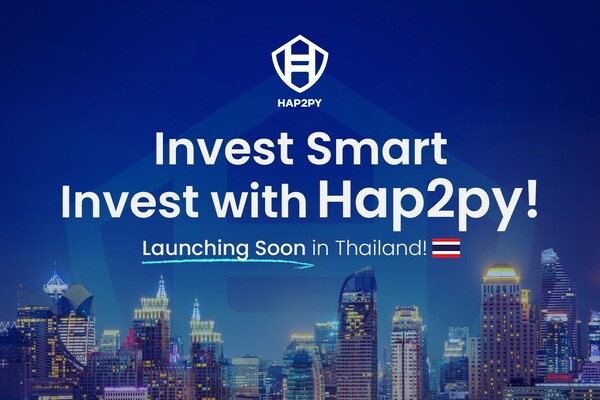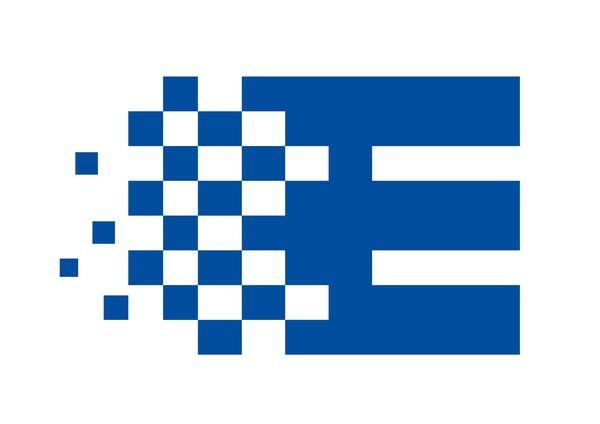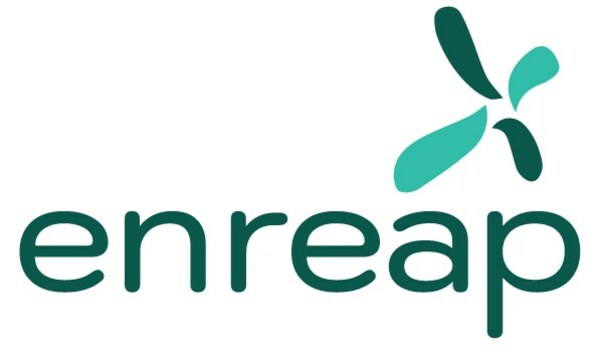Elliott Publishes Letter on GlaxoSmithKline

Elliott believes GSK has a substantial value creation opportunity – 45% upside in its share price – ahead of Consumer Health separation and greater beyond
Despite its strengths,GSK has a poor record of operational execution and value creation,leading to scepticism about the Company's future,and an under appreciation of its true potential
Elliott's letter outlines concrete steps to restore GSK's credibility and strengthen its ambition for the benefit of all
LONDON,July 1,2021 -- Elliott Advisors (UK) Limited,which advises funds that as at the date of this release have a significant position in GlaxoSmithKline ("GSK" or "the Company"),today published the following letter sharing its perspectives on the Company.
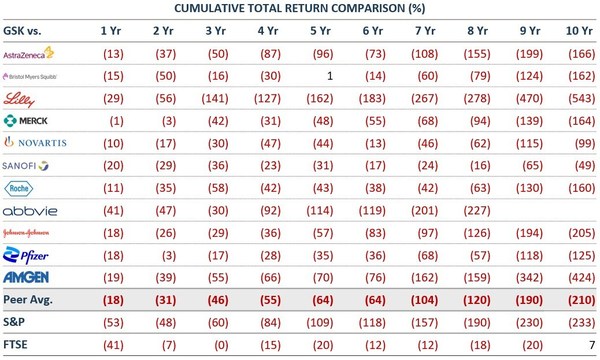
Figure 1: Cumulative Total Return Comparison: GSK vs. Peers
The letter can be downloaded at www.ElliottMaterials.com.
The full text of the letter follows:
1 July 2021
Sir Jonathan Symonds,CBE
GlaxoSmithKline
980 Great West Road
Brentford TW8 9GS
Dear Sir Jonathan and Members of the Board of Directors,
As you know,Elliott has built a significant position in GlaxoSmithKline ("GSK" or "the Company"). We made our investment after months of diligence and analysis,which resulted in our strong conviction that GSK could and should be a better business for patients,doctors,employees and shareholders.
To date,we have refrained from sharing our thoughts on GSK publicly,to allow the Company to focus on its much-anticipated 23 June Investor Update. Today,we are writing because we believe the time has come for a broader discussion regarding GSK's potential and how best to achieve it. Given the importance of what is at stake — setting GSK on a positive trajectory through a transparent and timely process — we are sharing this letter publicly so that our fellow shareholders and all parties with an interest or potential interest in GSK's future can participate in the dialogue.
Our letter today makes several important points:
GSK has a substantial value creation opportunity: We believe there is significantly more value to be realised at GSK with superior execution. Our analysis suggests that GSK has an opportunity to generate up to 45% upside in its share price in the lead-up to its full separation,and much more in the years beyond.
GSK has struggled with execution: GSK has underperformed for years,operationally and financially. Despite possessing strong businesses in attractive markets,GSK has failed to capture business opportunities due to years of under-management.
Board and management assessment required:While GSK's Board and management have sensibly created two separate businesses,Biopharma ("New GSK") and Consumer Health ("CH"),each of these businesses faces separate opportunities and challenges.The Board must ensure that each new company has the leadership that can achieve best-in-class outcomes for shareholders. We believe the Board must take additional timely steps to ensure execution and results.
GSK's Leadership Role and the Case for Change
GSK is an important company within the U.K. and across the globe. The Company has historically been a U.K. consumer,science,health and innovation champion,with its tens of thousands of employees making a positive impact on the lives of billions of patients and their families around the world. Its history dates back more than 300 years,over which GSK has pioneered revolutionary innovations in fields such as vaccines and HIV treatment. At its best,GSK provides lifelines to the world's most vulnerable populations. We have invested because we believe that GSK has the ability to produce exceptional results if it can execute on the potential of its strong yet underappreciated assets.
Despite the strengths of its people,its vaccines and its drugs,GSK has a poor record of execution and value creation. These shortcomings are clearly demonstrated in GSK's share price,which has underperformed every single peer over nearly every conceivable timeframe.1 Over the last ~15 years,GSK has dropped from being the third-largest pharma company to the eleventh-largest one. GSK's share of total R&D spend has dropped by over 30%.2 These facts have led to scepticism about the Company's future. In our view,this scepticism is inconsistent with GSK's true potential.
See Figure 1: Cumulative Total Return Comparison: GSK vs. Peers
Elliott's Process and Analysis
Elliott invested in GSK after extensive diligence,including consulting industry experts,former executives,investment banks,legal advisors,members of the scientific community,patient populations and other stakeholders,including dozens of GSK investors. Our work provided us with the strong conviction that GSK is a business with world-class potential,strong assets and boundless opportunities. The discount in the stock reflects the market's sentiment that after years of disappointing returns,GSK has lost its way. As GSK undergoes the process of separating CH from New GSK,it has a significant opportunity to correct this perception and unlock its vast potential.
GSK's Underappreciated Potential
With its new autonomy and flexibility,Elliott believes that CH should be able to increase its growth rate (to at least the 5% growth of the consumer healthcare market3),driven by improved execution and leadership. Furthermore,CH has ample room to increase its operating efficiency. The decision of the Board to create a separate CH business is a wise one. We expect it to bear fruit far in excess of its current market value. (See Appendix I for more details on our views on CH.)
New GSK is also well positioned to exceed expectations. Having grown sales at a double-digit CAGR over the past 15 years,GSK's vaccines business is the global leader,with the widest product and technology portfolio,and is well insulated from threats,with >90% of revenues coming from vaccines with >90% efficacy. This stability — combined with the growth potential from Shingrix,RSV,and pentavalent meningitis — makes GSK's vaccine franchise one of the crown jewels of the entire biopharma industry. In combination with GSK's pharmaceutical business (which itself includes several attractive and underappreciated assets,such as its leading HIV franchise and its solidly emerging oncology business),New GSK can look forward to top-quartile growth prospects and a more benign patent cliff than many market participants appreciate. Accordingly,it deserves a valuation that reflects these strengths. (See Appendix II for more details on our views on New GSK.)
CH and New GSK are two strong businesses that the market currently values far below their true potential. In our view,they warrant a combined valuation >45% higher than GSK's valuation today,especially as GSK progresses towards a full separation. (See Appendix III for our views on valuation and upside.)
The Case for Change and the Opportunity
Allowing GSK's long-term operational and share-price underperformance to persist without urgently taking appropriate measures would disappoint all with an interest in the Company. The Board must rise to the challenge and put forth a more ambitious plan to close the gap.In addition to the material upside for shareholders,a more innovative,nimble and efficient GSK will improve more lives,ease the burden on more health systems and become a more fulfilling workplace.
As mentioned above,GSK has underperformed its peers on shareholder returns,R&D investments and other key indicators. The causes of such severe underperformance stem from issues that stretch back more than a decade. GSK's biopharma business is viewed as overly bureaucratic. It is well known in the industry — and our diligence makes clear — that GSK's talented scientists are often not empowered to make the right decisions regarding their domains of expertise. This has had a damaging impact on morale,retention,performance and talent attraction. GSK's unwieldy organisation has also led to high levels of non-R&D costs relative to peers. Instead of spending those funds on R&D,GSK has historically spent them on its fragmented and inefficient manufacturing base,high SG&A,and other non-R&D cost buckets. From a broader capital allocation perspective,GSK chose to maintain a dividend in excess of what it could afford. This shifted funds away from investments in business development and R&D. Additionally,GSK has suffered from a lack of consistency in strategic direction; the sale of its oncology business to Novartis in 2015,only to re-enter oncology in a big way via the $5 billion acquisition of oncology-specialist Tesaro in 2018,is a case in point.
GSK's approach to investor communications has compounded these fundamental causes of underperformance. In recent years,GSK's unclear communications created two major overhangs on the Company's shares:
Dividend overhang: GSK has persistently paid a higher dividend than it could afford. Rather than cutting the dividend when this issue became clear at least four years ago,GSK chose instead to reassure and let the issue linger,creating the spectre of a large dividend cut in the future and a consequent overhang on its shares. GSK only confirmed the dividend cut last week. This persistent overhang has dissuaded many potential investors from building positions.
Consumer Health overhang: Several years ago,Company leadership announced its intention to separate CH and Biopharma,a decision we fully support. However,the leadership's failures to communicate the details of this separation for several years created another avoidable overhang on its shares,driven by questions and doubts among shareholders regarding the structure and timing of the CH separation.
These twin overhangs,which were finally addressed at the Investor Update,were avoidable mistakes that negatively impacted the share price.
While the aforementioned causes of GSK's underperformance are addressable,they have caused extremely weak sentiment among both existing shareholders and potential investors who have chosen not to own GSK shares. For example,the 2018 Tesaro deal showed a lack of confidence in management's decision-making. GSK's share price fell by 12% on an absolute basis and more than 8% relative to peers in the week after the Tesaro deal was announced. The market's reaction to the Tesaro deal destroyed more than $10 billion of GSK's market capitalisation,despite the transaction value being only $5 billion. The market's reaction conveyed concerns that ran much deeper than the fundamental merits of the Tesaro acquisition. Although it appears today that the Tesaro deal will likely generate an acceptable return,the signal at the time was clear: The market did not trust GSK to make the right decisions.
The sell-side takes a similarly jaded view. For instance,Gilead's HIV business is modelled in detail by most sell-side analysts,who build market-sizing models and make detailed assumptions as to what share of the market Gilead can capture. In contrast,GSK's HIV business is often met with a shrug ('the dolutegravir LOE will drive the business off a cliff') instead of detailed market modelling and survey work,which shows that ViiV has a promising future. Further,some analysts do not even include RSV in their model,despite this being a phase three asset,with a multi-billion peak sales opportunity,and GSK having a strong track record in vaccine development. The buy-side takes a similar low-confidence approach: Despite GSK outlining a promising future for ViiV beyond the dolutegravir LOE,GSK's share price barely reacted to the 23 June Investor Update. In summary,despite the bright fundamental prospects of New GSK,the market takes a dim view as a result of GSK's lack of credibility.
A recent broker-conducted survey of investors demonstrates the credibility gap: GSK's management team was voted investors' least favourite amongst a group of 11 large pharma companies4
See Figure 2: Sell-Side Broker Survey of Investors
While we understand the causes of such weak sentiment,we have conviction that GSK's future is much brighter than what its market valuation currently implies. In order to bridge the gap between GSK's fundamental prospects and the current lack of credibility,the Board must take decisive action.
The Path Forward
The Investor Updatewas an important step in the right direction; it succeeded in removing some key overhangs surrounding GSK and setting some expectations for New GSK's potential. However,the Investor Update was not sufficient to resolve GSK's credibility challenges.Years of historical mis-execution will not be remedied easily,yet despite the currently weak sentiment,we believe that GSK has the ability to restore the market's trust in the critical year ahead. In its assessment of GSK's path forward,we urge the Board to prioritise rebuilding the Company's credibility and strengthening its ambition for the benefit of all stakeholders,while ensuring shareholder value creation remains a key driver of its initiatives. While the below list of recommendations is not exhaustive,we believe that these actions would bring GSK closer to fulfilling its potential and restoring investor confidence.
Recommendation 1: Ensure the right leadership through the right process
In prior years,GSK has operated as a conglomerate with multiple distinct divisions. GSK's management and Board deserve credit for its recognition that CH and New GSK no longer fit under the same roof. However,following the Investor Update,shareholders still lack clarity on the plan and structure for leadership at each of New GSK and CH. We submit that the Board must engage in a credible process to ensure GSK has the right leadership and make timely,appropriate changes. Best practices require the following:
Choosethe Right Leadership for the Job: The first step in regaining trust and credibility with investors is to add biopharmaceuticals and scientific experience to the GSK Board. This intention has already been expressed,but the sequence matters. GSK's Board has promised to 'increase biopharmaceuticals and scientific experience for [the Board of] New GSK'. This objective should be completed before executing the separation from CH in order to enable the Board to choose the best possible leadership for both New GSK and CH. Elliott is prepared to share a list of independent Non-Executive Director ("NED") candidates that we and our advisors have identified.
After the reconstituted GSK Board is in place,this Board will be in a better position to ensure the best executive leadership for both new companies. Widely accepted corporate governance best practice dictates that this process should be led by two separate,newly formed special committees (one for CH,and one for New GSK),composed of NEDs that are slated to join the respective Boards post-separation. Such a process takes approximately six months or longer; hence,it is essential to add expertise to the GSK board so that they can add value to this process. To be clear,we believe that existing management should remain in place until a decision is made regarding future leadership.
Elliott calls on the Board to confirm that,prior to the separation from CH,GSK will appoint non-executive directors with deep biopharma and CH expertise,and that the new,fit-for-purpose GSK Board will then run robust processes for selecting the best executive leadership for New GSK and CH,considering both internal and external candidates.Elliott is not advocating a specific outcome but is arguing for a robust process,because it is critical that the Board assure current and future shareholders that the new leadership of both companies was selected through a credible process that conforms to corporate governance best practices. Elliott strongly believes that the future CEOs of New GSK and CH must have the skillsets and expertise to match their respective tasks at hand.
Recommendation 2: Incentivise stronger performance and greater ambition
The portion of the compensation plan linked to financial targets should be substantial. The bottom end of the revenue and operating profit guidance issued at the Investor Update (2021-2026 CAGR of 'more than 5%' for revenue and 'more than 10%' for operating profit) should be viewed as a floor below which no bonus is earned for that portion of the compensation plan. The achievement of more ambitious targets (e.g.,8% and 15% revenue and operating profit CAGRs,respectively) should earn a full bonus. GSK should also explore linking a portion of compensation to longer-term guidance for the executive team. For example,a component linked to R&D milestones will directly influence R&D decision-making and performance,which will benefit shareholders in the long run. The level of ambition will determine the level of GSK's achievements. It is the Board's responsibility to ensure the bar is set sufficiently high.
Recommendation 3: Improve profitability while investing more in R&D
New GSK's profitability target of more than 30% operating profit margins by 2026 is a welcome step in the right direction. However,it does not go far enough. GSK is rightfully prioritising R&D and increasing those investments meaningfully above its investment levels of the past decade. Such investments should continue. GSK is already implementing much-needed cost-savings plans. Pursuing efficiencies is a virtuous cycle; it creates a more focused,nimble and powerful company. Through a continuous focus on efficiency,coupled with the natural operating leverage that accompanies strong sales growth outperformance,GSK's margin can rise further. We recommend that New GSK targets a 32% operating profit margin by 2026 and that this target is incorporated into management's incentive plans. Pursuing this higher target is not just a matter of generating financial returns. It is a strong signal of management's ambition to make GSK a stronger,more efficient business with ample financial flexibility to quickly respond to opportunities or challenges that may arise.
Recommendation 4: Display openness to value-maximising pathways
We believe that there are high potential synergies for strategic transactions and that the GSK Board should remain open to the possibility of diverting from its base case plan. Any strategic opportunity for the sale of CH should be diligently pursued and accompanied by a clear plan for how GSK will use the proceeds. We believe that the substantial proceeds could accelerate the funding of increased R&D at New GSK and be used to pay down debt,with the remainder returned to shareholders in the most tax-efficient manner possible (e.g.,buybacks). Such a scenario would unlock substantial value for shareholders and demonstrate the Board's commitment to value creation. If such opportunities arise in the next few months,we urge the Board to evaluate them impartially against the default spin and sell-down plan announced in the Investor Update.
Recommendation 5: Preserve Vaccines and Pharma's nimbleness
We do not believe Vaccines and Pharma should be fully integrated because we are not convinced that 'clear synergies' exist between the two. While there are modest R&D overlaps related to basic immunology research,the Vaccines and Pharma businesses are largely separate in terms of manufacturing processes and commercialisation. GSK should benefit from exchanging views on immune system research and best practices without the need to integrate the two businesses.
Providing Vaccines more autonomy could increase its talent retention and nimbleness,so that it can better capture opportunities such as Shingrix/RSV,and so that Vaccines will be better positioned for future pandemics than it was for Covid-19. Additionally,maintaining separate divisional reporting for Vaccines will allow investors to appropriately value GSK's crown jewel Vaccines business. To avoid any doubt,Elliott is not recommending a sale of the Vaccines business nor are we recommending any changes that could potentially result in a Vaccines business that will not remain U.K.-owned.
***
The recommendations outlined in this letter will restore GSK's credibility,and invigorate its employees,investors,and customers. More nimble Vaccines and Pharma businesses will generate more value for shareholders.
This path to value creation is a rare opportunity. After years of disappointing performance,which led to frustrated shareholders,demotivated employees and an erosion of the Company's public perception and credibility,GSK is facing a significant inflection point. The separation of CH will unlock value for shareholders while allowing a dedicated biopharma-focused management to deliver on its near-term growth prospects while investing in innovation for the long term. With the right governance,ambition and execution,we strongly believe that New GSK can deliver and exceed the stated targets by building on its strong asset base and staying the course. For investors,simply reducing the credibility gap can unlock 45% of value in the lead up to the full separation of GSK's CH business,and much more over time if GSK's focus translates into even modest pipeline breakthroughs. The Board has a responsibility to seize this opportunity for future patients,current investors and all other stakeholders. We expect GSK to follow the steps above in order to realise its true potential,and we stand ready to help GSK along the way.
We look forward to a constructive engagement with you in the months leading to the separation and beyond.
Sincerely,
Elliott Advisors (UK) Limited
Appendix I:GSK Consumer Healthcare
CH is the global leader in the consumer health market and,after separation,will be the only major listed pure-play consumer health company,with leadership positions in a number of highly attractive and growing categories:5
See Figure 3: GSK Consumer Health End-Market Positioning
Driven by leading brands,strong R&D capabilities,solid pricing power and robust market volume growth,CH has a ~4% organic growth outlook,6 comparing favourably to its consumer packaged goods peers. Further,CH has significant upside margin potential,with EBITDA margins ~5% below the consumer health peer average,7 despite its globally leading scale and focus on high gross margin global power brands. This margin expansion could drive significant EPS growth well in excess of top line growth,providing another attractive element to the equity story. As an independent business,Consumer Health will be able to set its own agenda on investments and capital allocation,positioning the business to benefit from potential consolidation in the industry,and allowing the business to target growth in line with or exceeding the 5% industry growth rate.8 This means CH can grow faster,invest better,improve its efficiency and,as a result,provide better products to more customers. This dynamic makes CH a highly attractive company,both as a standalone investment and as a potential strategic target for other players in the industry.
Appendix II:New GSK
While there is still some scepticism around the long-term prospects of New GSK,it compares favourably to peers on a number of key metrics. For instance,revenue growth prospects for the next five years appear robust,even at the lower end of the Company's growth guidance of 5%,putting the business in the top quartile of large cap pharma peers9 and with a significantly higher growth rate very much achievable:
See Figure 4: 2021-2026 Pharma Revenue CAGR
GSK's portfolio is also comparatively resilient,with its 2028 patent cliff comparing favourably to peers in terms of both timing and size:10
See Figure 5: 2027-2030 Change in Pharma Revenues
A solid product portfolio underpins this growth and resilience.
Vaccines
GSK is the number one player in vaccines globally,with a 15-year track record of double-digit growth,driving revenues from £1.4 billion in 2005 to £7.0 billion in 2020. Unique in biopharma,vaccine players do not face generic competition due to the complexity of vaccine manufacturing,which translates into an extremely long asset duration with no patent cliffs. Further,there are high barriers to entry given the complex nature and high cost of new vaccine development,with large trial populations and long timelines. Development is even more challenging when existing vaccines are highly efficacious,as new vaccines must be demonstrably non-inferior to existing vaccines to gain regulatory approval. Additionally,such trials are challenging to complete when highly efficacious approved vaccines cause a very low rate of viral infections in the population. Furthermore,significant ethical issues make it challenging to give trial participants a new,experimental vaccine when a highly efficacious vaccine is already present on the market. These ethical considerations are especially important for paediatric indications where GSK has a strong expertise and track record. Although Covid-19 has allowed the entry of new players through mRNA technology,for the reasons laid out above,GSK's existing vaccines business is well protected from mRNA disruption given the high efficacy of its portfolio,with >90% of the portfolio having >90% efficacy:
See Figure 6: Overview of GSK Vaccines Portfolio
Importantly,GSK also has access to novel vaccine technologies,including mRNA,through its partnerships with Curevac and Medicago,as well as its existing internal know-how in mRNA and self-amplifying RNA. We expect GSK to compete aggressively across the opportunities that these new technologies are likely to create (e.g.,flu).
The Company has recently demonstrated its leading development and commercialisation capabilities with its shingles vaccine. After some initial manufacturing-related challenges,Shingrix is expected to grow to over £4 billion of sales by 2026,driving a highly attractive high-single-digit top line growth profile for vaccines from 2021-26. This powerful vaccine is a prime example of the unique role GSK's vaccines franchise plays for patients around the world. Importantly,all initial capacity constraints around Shingrix have now been resolved. As Covid-19 recedes and demand for Shingrix sharply rises,GSK is now prepared to increase patients' access to the vaccine; as a result,sales should rebound rapidly ahead of consensus revenue assumptions,which had previously expected meaningful capacity constraints into 2022 and 2023.
While GSK's questionable initial strategic decision not to lead the global Covid-19 vaccination effort has cast doubt on its status as the vaccine leader,we remain highly confident in the strength of its positioning and innovation engine. GSK has the best adjuvant technology and has one of the leading pipelines in the industry. The impressive pipeline includes the potential first-to-market vaccine for RSV in older adults and a next generation pentavalent meningitis vaccine,both of which are expected to be blockbusters and drive strong growth well into the 2030s.
Pharma
Outside of vaccines,GSK has a number of promising pharma assets,the full potential of which have not yet been reflected in market consensus numbers. Firstly,GSK has a world leading HIV business,ViiV,which has developed medical breakthroughs that have helped tame a deadly pandemic. Today,ViiV is well positioned to grow beyond its patent cliff and further improve the lives of the patients it touches. The long acting injectable Cabotegravir is one of the pillars of ViiV's future growth. We have conducted surveys of HIV patients and physicians to better understand the opportunity for long-acting injectables ("LAIs"). In our surveys,which included 200 physicians and more than 150 patients globally,over 47% of patients confirmed their interest in switching to a once-every-two-months injectable,and physicians stated their expectation to switch over 36% of patients to Cabenuva (GSK's Cabotegravir-based regimen) over the next five years. If 30% of U.S. patients and 10% of E.U. patients switch to LAIs,the implied market opportunity could be as high as £6 billion.11 In contrast,current market consensus peak revenues of ~£900 million imply market share for Cabenuva of just 3-4%,which is highly inconsistent with the favourable competitive landscape for LAIs. On top of this opportunity in treatment,there is also significant upside potential inpre-exposure prophylaxis ("PrEP") with Cabotegravir showing superiority to orals in studies,with physicians expecting to switch 35% of their PrEP patients to Cabotegravir-based regimens,and the potential for meaningful market expansion beyond the current ~250,000 patients on PrEP in the U.S. In short,GSK can continue to improve the lives of HIV patients and their families as it addresses unmet needs through innovation,while creating sustainable value for its shareholders.
GSK also has a nascent specialty business with a number of near-term growth drivers including cancer treatment Zejula,which has significant potential to build upon its current ovarian cancer indication,multiplying the size of its market opportunity by >5x.12 Similarly,Blenrep,its anti-BCMA antibody drug conjugate for multiple myeloma,presents a highly cost-effective alternative to other late line therapies such as CAR-Ts,and has room to significantly exceed current modest market expectations by addressing concerns around its potential toxicity through combinations with other therapeutics and reduced dosage. The existing commercial portfolio is underpinned by a growing base of oncology products (including therapeutics targeting PD-1,and PARP),which the Company has the potential to leverage over time as important building blocks of combination therapies. For example,with the acquisition of iTeos,GSK now has an innovative and potential first-to-market triplet approach combining its PD-1,TIGIT and CD96 therapeutics. While it will take time for this early-stage pipeline to develop,GSK already benefits from solid growth prospects in the near term solely based on its portfolio of commercial products and late stage pipeline. Given the significant size of some of the markets GSK is targeting in its development efforts (such as NSCLC),the Company only needs one or two successes to materially improve the pipeline narrative and longer-term growth prospects. GSK needs to focus on areas where it can bring real,differentiated value to patients,putting it in the strongest position to contribute to the global fight against cancer and hence deliver the best return on capital for its investors. The Company's oncology efforts are still at an early stage but are starting to demonstrate the focus and coherence that was badly needed after GSK's exit from the space in 2015.
Even setting aside the early stage pipeline,the Company's £33 billion 2031 revenue target looks highly achievable,with a Shingrix-like £3-5 billion opportunity in RSV older adult,>£1 billion for pentavalent meningitis,a potential £3-5 billion opportunity in for Cabenuva / Cabotegravir for PrEP,and an opportunity of at least £2 billion in HBV,where GSK has a potential curative therapy. Together,these key pipeline products should be more than enough to offset dolutegravir's loss of exclusivity in 2028.
Finally,GSK has a substantial opportunity to improve New GSK margins. Over recent years,driven by a prudent increase in R&D investment,margins have declined to the lowest in the industry.13 Going forward,the margin picture ought to improve materially despite continued investment in R&D. With significant revenue growth,combined with operating leverage,GSK's margins should naturally increase. Additionally,the announced £1.0 billion of "Future Ready" savings should steadily improve margins to at least 30% by 2026. Such margin improvement,combined with the expected revenue growth should drive a 2021-2026 operating profit CAGR of over 10%,positioning GSK as one of the top players in the industry.
Appendix III:A Stronger GSK is a More Valuable GSK
GSK's opportunities to improve will not only create a better business,but they will also create significant value for shareholders,including employees,pensioners and other individual shareholders.
GSK's wise decision to separate into two strong businesses will be a key driver in unlocking that opportunity. Given that imminent separation,we believe each business should be valued on its own merits,as they will be separate companies shortly.
Many pharma analysts (who cover GSK today) value Consumer Health on a multiple of EV/EBITDA; they assume that CH will trade roughly in line with consumer peers that grow sales at 3%-5% per year. This approach implies a valuation of ~£30 billion for GSK's stake in CH. However,we believe that upon the separation,consumer-focused investors and analysts will value CH based on the industry-leading calibre of the business and using a P/E multiple,which is how consumer businesses are more typically valued; on this basis,GSK's stake in CH could be valued closer to ~£38 billion. We believe that the consumer view of the business will prevail upon separation but conservatively using the average of these two approaches yields a valuation of ~£34 billion. Additionally,there is significant potential upside from a merger between CH and another strategic player,with synergies of up to 10% of target sales driving a potential take-out valuation at a meaningful premium to our base case valuation.14
A method of valuing biopharma businesses is to use a regression of top line growth vs. valuation multiples,given the high correlation observed between these variables. Assuming a conservative top-line growth of ~6%,which ties in with management's recent divisional growth guidance (Vaccines at a high single digit rate,Specialty Medicines at a double digit rate and General Medicines flat),our regression suggests an appropriate valuation multiple for New GSK of ~12x EBITDA,15 equivalent to ~£100 billion. This multiple is particularly reasonable given GSK's high relative exposure to vaccines,which comprise ~38% of New GSK's EBITDA (vs. <20% for peers with vaccine exposure),and which is a highly durable business that deserves a valuation premium over pharma. This approach yields a valuation below our bottom-up,asset-by-asset discounted cash flow valuation of ~13x EBITDA.16
The combined valuations of CH and New GSK suggest the Company is materially undervalued by the market today,with a potential 45% share price upside for investors even before any early-stage pipeline materialises. This upside could increase meaningfully if a sale of CH materialises at a premium to its standalone valuation. There is no fundamental reason that GSK should trade at such a significant conglomerate discount,as the CH business will soon separate and Vaccines and Pharma are two complementary pillars of GSK's growth story.17
See Figure 7: GSK Sum of the Parts Valuation and Upside (£bn)
Put another way,subtracting the value of CH from GSK's current enterprise value implies that the market is currently valuing New GSK at an unreasonably low multiple of just ~8x EBITDA,a 33% discount to fair value. Looking at our regression of biopharma peers,this multiple suggests that the market expects GSK to underperform the lower end of recently issued company guidance for 2026 by 28%,18 which we view as highly unlikely. Indeed,in our view,significantly exceeding the 5% revenue CAGR guidance should be achievable given multiple upside growth drivers across the portfolio,including Cabenuva,Zejula,RSV and Pentavalent Meningitis,all of which are in our view underappreciated in consensus.
With ambition as well as determined operational execution,and as credibility with the market is rebuilt,we believe GSK management can and should unlock the Company's full value potential over time.
GSK's financial performance affects all of its stakeholders. GSK's sales are a proxy for the reach of its drugs and vaccines which improve the lives of millions of patients across the world each year. Providing these life-saving drugs and vaccines in the most efficient manner (i.e. earning a strong margin) allows GSK to invest a portion of those profits into researching and developing more life-saving treatments. The portion not invested in R&D can be used to improve manufacturing facilities or subsidise HIV drugs for those who cannot afford them. Strong financial performance is usually a sign of a company's attractiveness and sustainability. With market credibility (i.e. a high share price,a strong credit rating),GSK can better attract and retain talented scientists as well as raise funds (via debt or equity issuance) that allow it to keep growing its reach via R&D and M&A. Such investments,when made prudently and through the right processes,generate more life-saving drugs and vaccines that benefit all stakeholders.
THIS DOCUMENT HAS BEEN ISSUED BY ELLIOTT ADVISORS (UK) LIMITED ("EAUK"),WHICH IS AUTHORISED AND REGULATED BY THE UNITED KINGDOM'S FINANCIAL CONDUCT AUTHORITY ("FCA"). NOTHING WITHIN THIS DOCUMENT PROMOTES,OR IS INTENDED TO PROMOTE,AND MAY NOT BE CONSTRUED AS PROMOTING,ANY FUNDS ADVISED DIRECTLY OR INDIRECTLY BY EAUK (THE "ELLIOTT FUNDS").
THIS DOCUMENT IS FOR DISCUSSION AND INFORMATIONAL PURPOSES ONLY. THE VIEWS EXPRESSED HEREIN REPRESENT THE OPINIONS OF EAUK AND ITS AFFILIATES (COLLECTIVELY,"ELLIOTT MANAGEMENT") AS OF THE DATE HEREOF. ELLIOTT MANAGEMENT RESERVES THE RIGHT TO CHANGE OR MODIFY ANY OF ITS OPINIONS EXPRESSED HEREIN AT ANY TIME AND FOR ANY REASON AND EXPRESSLY DISCLAIMS ANY OBLIGATION TO CORRECT,UPDATE OR REVISE THE INFORMATION CONTAINED HEREIN OR TO OTHERWISE PROVIDE ANY ADDITIONAL MATERIALS.
ALL OF THE INFORMATION CONTAINED HEREIN IS BASED ON PUBLICLY AVAILABLE INFORMATION WITH RESPECT TO GLAXOSMITHKLINE PLC (THE "COMPANY"),INCLUDING PUBLIC FILINGS AND DISCLOSURES MADE BY THE COMPANY AND OTHER SOURCES,AS WELL AS ELLIOTT MANAGEMENT'S ANALYSIS OF SUCH PUBLICLY AVAILABLE INFORMATION. ELLIOTT MANAGEMENT HAS RELIED UPON AND ASSUMED,WITHOUT INDEPENDENT VERIFICATION,THE ACCURACY AND COMPLETENESS OF ALL DATA AND INFORMATION AVAILABLE FROM PUBLIC SOURCES,AND NO REPRESENTATION OR WARRANTY IS MADE THAT ANY SUCH DATA OR INFORMATION IS ACCURATE. ELLIOTT MANAGEMENT RECOGNISES THAT THERE MAY BE CONFIDENTIAL OR OTHERWISE NON-PUBLIC INFORMATION WITH RESPECT TO THE COMPANY THAT COULD ALTER THE OPINIONS OF ELLIOTT MANAGEMENT WERE SUCH INFORMATION KNOWN.
NO REPRESENTATION,WARRANTY OR UNDERTAKING,EXPRESS OR IMPLIED,IS GIVEN AND NO RESPONSIBILITY OR LIABILITY OR DUTY OF CARE IS OR WILL BE ACCEPTED BY ELLIOTT MANAGEMENT OR ANY OF ITS DIRECTORS,OFFICERS,EMPLOYEES,AGENTS,OR ADVISORS (EACH AN "ELLIOTT PERSON") CONCERNING: (I) THIS DOCUMENT AND ITS CONTENTS,INCLUDING WHETHER THE INFORMATION AND OPINIONS CONTAINED HEREIN ARE ACCURATE,FAIR,COMPLETE OR CURRENT; (II) THE PROVISION OF ANY FURTHER INFORMATION,WHETHER BY WAY OF UPDATE TO THE INFORMATION AND OPINIONS CONTAINED IN THIS DOCUMENT OR OTHERWISE TO THE RECIPIENT AFTER THE DATE OF THIS DOCUMENT; OR (III) THAT ELLIOTT MANAGEMENT'S INVESTMENT PROCESSES OR INVESTMENT OBJECTIVES WILL OR ARE LIKELY TO BE ACHIEVED OR SUCCESSFUL OR THAT ELLIOTT MANAGEMENT'S INVESTMENTS WILL MAKE ANY PROFIT OR WILL NOT SUSTAIN LOSSES. PAST PERFORMANCE IS NOT INDICATIVE OF FUTURE RESULTS. TO THE FULLEST EXTENT PERMITTED BY LAW,NONE OF THE ELLIOTT PERSONS WILL BE RESPONSIBLE FOR ANY LOSSES,WHETHER DIRECT,INDIRECT OR CONSEQUENTIAL,INCLUDING LOSS OF PROFITS,DAMAGES,COSTS,CLAIMS OR EXPENSES RELATING TO OR ARISING FROM THE RECIPIENT'S OR ANY PERSON'S RELIANCE ON THIS DOCUMENT.
EXCEPT FOR THE HISTORICAL INFORMATION CONTAINED HEREIN,THE INFORMATION AND OPINIONS INCLUDED IN THIS DOCUMENT CONSTITUTE FORWARD-LOOKING STATEMENTS,INCLUDING ESTIMATES AND PROJECTIONS PREPARED WITH RESPECT TO,AMONG OTHER THINGS,THE COMPANY'S ANTICIPATED OPERATING PERFORMANCE,THE VALUE OF THE COMPANY'S SECURITIES,DEBT OR ANY RELATED FINANCIAL INSTRUMENTS THAT ARE BASED UPON OR RELATE TO THE VALUE OF SECURITIES OF THE COMPANY (COLLECTIVELY,"COMPANY SECURITIES"),GENERAL ECONOMIC AND MARKET CONDITIONS AND OTHER FUTURE EVENTS. YOU SHOULD BE AWARE THAT ALL FORWARD-LOOKING STATEMENTS,ESTIMATES AND PROJECTIONS ARE INHERENTLY UNCERTAIN AND SUBJECT TO SIGNIFICANT ECONOMIC,COMPETITIVE,AND OTHER UNCERTAINTIES AND CONTINGENCIES AND HAVE BEEN INCLUDED SOLELY FOR ILLUSTRATIVE PURPOSES. ACTUAL RESULTS MAY DIFFER MATERIALLY FROM THE INFORMATION CONTAINED HEREIN DUE TO REASONS THAT MAY OR MAY NOT BE FORESEEABLE. THERE CAN BE NO ASSURANCE THAT THE COMPANY SECURITIES WILL TRADE AT THE PRICES THAT MAY BE IMPLIED HEREIN,AND THERE CAN BE NO ASSURANCE THAT ANY ESTIMATE,PROJECTION OR ASSUMPTION HEREIN IS,OR WILL BE PROVEN,CORRECT.
THIS DOCUMENT IS FOR INFORMATIONAL PURPOSES ONLY,AND DOES NOT CONSTITUTE (A) AN OFFER OR INVITATION TO BUY OR SELL,OR A SOLICITATION OF AN OFFER TO BUY OR SELL,ANY SECURITY OR OTHER FINANCIAL INSTRUMENT AND NO LEGAL RELATIONS SHALL BE CREATED BY ITS ISSUE,(B) A "FINANCIAL PROMOTION" FOR THE PURPOSES OF THE FINANCIAL SERVICES AND MARKETS ACT 2000,(C) "INVESTMENT ADVICE" AS DEFINED BY THE FCA HANDBOOK,(D) "INVESTMENT RESEARCH" AS DEFINED BY THE FCA HANDBOOK,OR (E) AN "INVESTMENT RECOMMENDATION" AS DEFINED BY REGULATION (EU) 596/2014AND BY REGULATION (EU) NO. 596/2014 AS IT FORMS PART OF U.K. DOMESTIC LAW BY VIRTUE OF SECTION 3 OF THE EUROPEAN UNION (WITHDRAWAL) ACT 2018 ("EUWA 2018") INCLUDING AS AMENDED BY REGULATIONS ISSUED UNDER SECTION 8 OF EUWA 2018. THIS DOCUMENT IS NOT (AND MAY NOT BE CONSTRUED TO BE) LEGAL,TAX,INVESTMENT,FINANCIAL OR OTHER ADVICE. EACH RECIPIENT SHOULD CONSULT THEIR OWN LEGAL COUNSEL AND TAX AND FINANCIAL ADVISERS AS TO LEGAL AND OTHER MATTERS CONCERNING THE INFORMATION CONTAINED HEREIN. THIS DOCUMENT DOES NOT PURPORT TO BE ALL-INCLUSIVE OR TO CONTAIN ALL OF THE INFORMATION THAT MAY BE RELEVANT TO AN EVALUATION OF THE COMPANY,COMPANY SECURITIES OR THE MATTERS DESCRIBED HEREIN.
NO AGREEMENT,COMMITMENT,UNDERSTANDING OR OTHER LEGAL RELATIONSHIP EXISTS OR MAY BE DEEMED TO EXIST BETWEEN OR AMONG ELLIOTT MANAGEMENT AND ANY OTHER PERSON BY VIRTUE OF FURNISHING THIS DOCUMENT. ELLIOTT MANAGEMENT IS NOT ACTING FOR OR ON BEHALF OF,AND IS NOT PROVIDING ANY ADVICE OR SERVICE TO,ANY RECIPIENT OF THIS DOCUMENT. ELLIOTT MANAGEMENT IS NOT RESPONSIBLE TO ANY PERSON FOR PROVIDING ADVICE IN RELATION TO THE SUBJECT MATTER OF THIS DOCUMENT. BEFORE DETERMINING ON ANY COURSE OF ACTION,ANY RECIPIENT SHOULD CONSIDER ANY ASSOCIATED RISKS AND CONSEQUENCES AND CONSULT WITH ITS OWN INDEPENDENT ADVISORS AS IT DEEMS NECESSARY.
THE ELLIOTT FUNDS HAVE A DIRECT OR INDIRECT INVESTMENT IN THE COMPANY. ELLIOTT MANAGEMENT THEREFORE HAS A FINANCIAL INTEREST IN THE PROFITABILITY OF THE ELLIOTT FUNDS' POSITIONS IN THE COMPANY. ACCORDINGLY ELLIOTT MANAGEMENT MAY HAVE CONFLICTS OF INTEREST AND THIS DOCUMENT SHOULD NOT BE REGARDED AS IMPARTIAL. NOTHING IN THIS DOCUMENT SHOULD BE TAKEN AS ANY INDICATION OF ELLIOTT MANAGEMENT'S CURRENT OR FUTURE TRADING OR VOTING INTENTIONS WHICH MAY CHANGE AT ANY TIME.
ELLIOTT MANAGEMENT INTENDS TO REVIEW ITS INVESTMENTS IN THE COMPANY ON A CONTINUING BASIS AND DEPENDING UPON VARIOUS FACTORS,INCLUDING WITHOUT LIMITATION,THE COMPANY'S FINANCIAL POSITION AND STRATEGIC DIRECTION,THE OUTCOME OF ANY DISCUSSIONS WITH THE COMPANY,OVERALL MARKET CONDITIONS,OTHER INVESTMENT OPPORTUNITIES AVAILABLE TO ELLIOTT MANAGEMENT,AND THE AVAILABILITY OF COMPANY SECURITIES AT PRICES THAT WOULD MAKE THE PURCHASE OR SALE OF COMPANY SECURITIES DESIRABLE,ELLIOTT MANAGEMENT MAY FROM TIME TO TIME (IN THE OPEN MARKET OR IN PRIVATE TRANSACTIONS,INCLUDING SINCE THE INCEPTION OF ELLIOTT MANAGEMENT'S POSITION) BUY,SELL,COVER,HEDGE OR OTHERWISE CHANGE THE FORM OR SUBSTANCE OF ANY OF ITS INVESTMENTS (INCLUDING COMPANY SECURITIES) TO ANY DEGREE IN ANY MANNER PERMITTED BY LAW AND EXPRESSLY DISCLAIMS ANY OBLIGATION TO NOTIFY OTHERS OF ANY SUCH CHANGES. ELLIOTT MANAGEMENT ALSO RESERVES THE RIGHT TO TAKE ANY ACTIONS WITH RESPECT TO ITS INVESTMENTS IN THE COMPANY AS IT MAY DEEM APPROPRIATE.
ELLIOTT MANAGEMENT HAS NOT SOUGHT OR OBTAINED CONSENT FROM ANY THIRD PARTY TO USE ANY STATEMENTS OR INFORMATION CONTAINED HEREIN. ANY SUCH STATEMENTS OR INFORMATION SHOULD NOT BE VIEWED AS INDICATING THE SUPPORT OF SUCH THIRD PARTY FOR THE VIEWS EXPRESSED HEREIN. ALL TRADEMARKS AND TRADE NAMES USED HEREIN ARE THE EXCLUSIVE PROPERTY OF THEIR RESPECTIVE OWNERS.
About Elliott
Elliott Investment Management L.P. manages approximately $44 billion of assets. Its flagship fund,Elliott Associates,L.P.,was founded in 1977,making it one of the oldest funds under continuous management. The Elliott funds' investors include pension plans,sovereign wealth funds,endowments,foundations,funds-of-funds,high net worth individuals and families,and employees of the firm. Elliott Advisors (UK) Limited is an affiliate of Elliott Investment Management L.P.
1Source: Bloomberg as of 14-Apr-21 (day before reports of Elliott involvement),performance in USD
2Share of total R&D spend of top 11 pharma companies has dropped from 12% in 2005 to 8% in 2020
3Based on leading industry data providers. Leading management consulting firm analysis
4Source: Sell-side broker survey of investors (Feb 2021; n=64)
5Based on leading management consulting firm analysis
62020 organic growth of 4% and Visible Alpha consensus 2022 growth of 4%.
7Based on 2020 company reporting. Leading management consulting firm analysis
8Based on leading industry data providers. Leading management consulting firm analysis
9Peer Visible Alpha consensus revenues as of 25-Jun-21,includes pharma and vaccines revenues only,GSK lower end of Company guidance,PFE revenues exclude contribution from Covid-19 vaccine
10Visible Alpha consensus revenues as of 25-Jun-21,includes pharma and vaccines revenues only
11Assuming 0.8m treated HIV patients in the U.S.,1.0m treated HIV patients in the E.U.,and a net price of $30k in the U.S. and $20k in the E.U.
12Driven by potential approvals in NSCLC,Breast and Endometrial cancer
13Of the top 11 large cap pharma players
1410% synergies represents ~40% of CH's EBITDA,thus creating significant value to be shared between buyer and seller
15Peers comprise AMGN,MRK,JNJ,PFE,AZN,NOVN,BMY,SAN,NOVO,ROG (LLY excluded given outlier)
16Assuming 7.5% WACC and 1.0% terminal growth rate,in line with sell-side analyst assumptions
17Valuation of GSK's 68% stake in CH
18Regression implies '21-26 CAGR of 0% vs. lower end of Company guidance of 5%
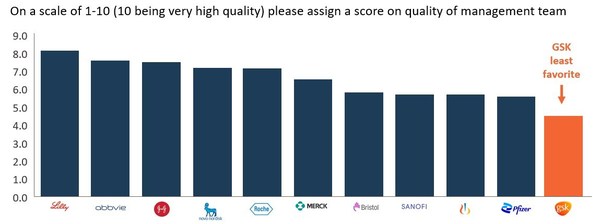
Figure 2: Sell-Side Broker Survey of Investors
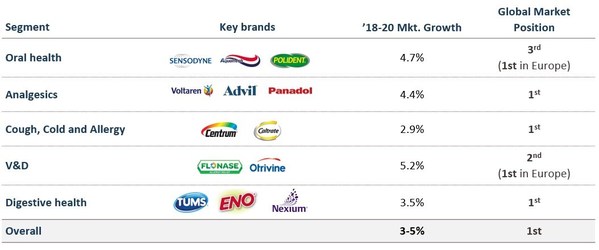
Figure 3: GSK Consumer Health End-Market Positioning
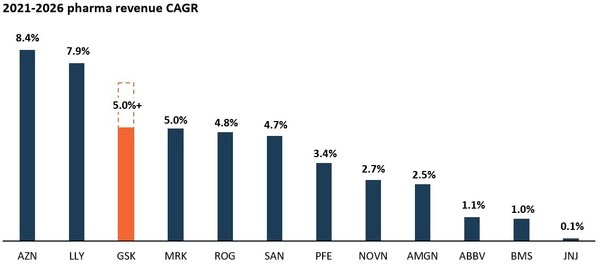
Figure 4: 2021-2026 Pharma Revenue CAGR
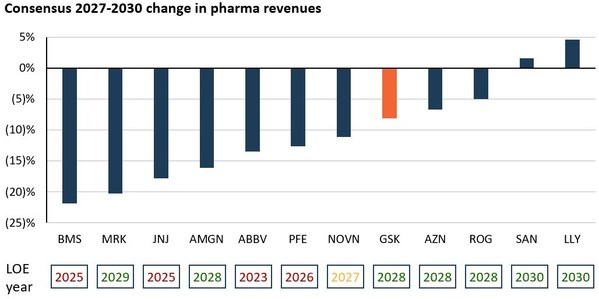
Figure 5: 2027-2030 Change in Pharma Revenues
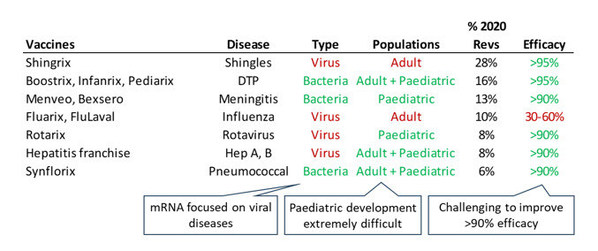
Figure 6: Overview of GSK Vaccines Portfolio
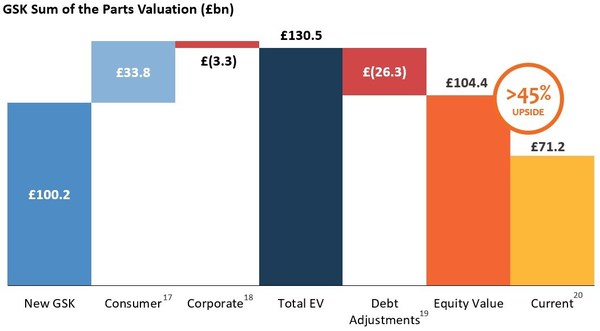
Figure 7: GSK Sum of the Parts Valuation and Upside (£bn)
Photo - http://cusmail.com/res/2023/07-22/19/b898f93e0fdb17fb7fc0dd1522aa1395.jpg
Photo - http://cusmail.com/res/2023/07-22/19/1d49d42ace35b8f8f41509e47ad5e463.jpg
Photo - http://cusmail.com/res/2023/07-22/19/90322c068c7ec57a7e23f46a6738d5c4.jpg
Photo - http://cusmail.com/res/2023/07-22/19/a2fbc103e68400ed8c07a278f6d635dd.jpg
Photo - http://cusmail.com/res/2023/07-22/19/177c7afac98f1d1228f6c05de3f5e1ed.jpg
Photo - http://cusmail.com/res/2023/07-22/19/d2323983fb682c9119aed56c5fd39bd6.jpg
Photo - http://cusmail.com/res/2023/07-22/19/56fe02d6b74ec23419e9e853613477d5.jpg
Logo - http://cusmail.com/res/2023/07-22/19/278d1a97c30b4a174f1a22a765a7315d.jpg
Tags: Banking/Financial Service Health Care/Hospital Medical/Pharmaceuticals Pharmaceuticals
Previous:InDevR Launches VaxArray Polio Kit for Faster, Multiplexed Vaccine Characterizat...
Next:Joint Commission International publishes fourth edition of International Accredi...
Leave a comment
Follow Us
Newsletter
Join us to get the latest news.
